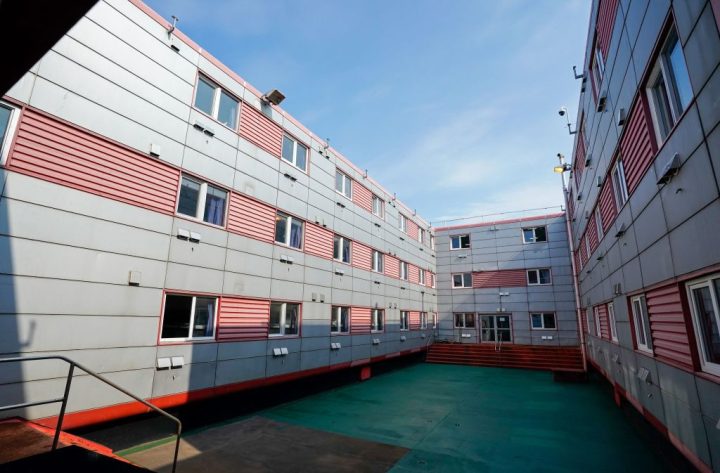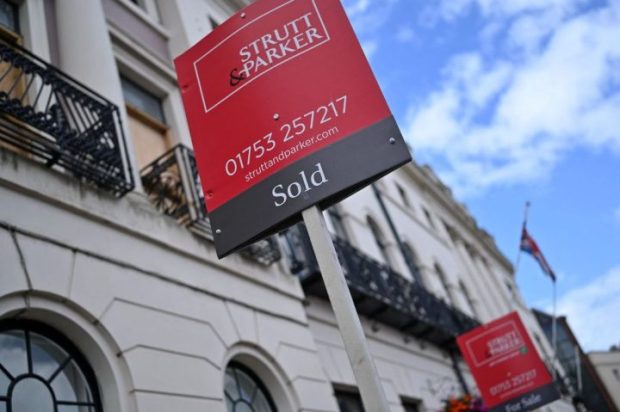‘By the light of the torches, we saw the black Hulk lying out a little way from the mud of the shore, like a wicked Noah’s ark. Cribbed and barred and moored by massive rusty chains, the prison-ship seemed in my young eyes to be ironed like the prisoners. We saw the boat go alongside, and we saw him taken up the side and disappear. Then, the ends of the torches were flung hissing into the water, and went out, as if it were all over with him.’ It is with a pleasurable shudder that most of us will remember Charles Dickens’s description, in Great Expectations, of the wicked Noah’s ark of a prison hulk moored in the Thames.
It is, I suspect, this cultural memory – of wicked men crammed in filth and squalor aboard the cruel prison ships of the 19th century – that has made the idea of housing asylum-seekers on barges such a hot-button issue politically. Housing people on barges speaks to us viscerally of a past age of barbarism; and it is associated inexorably in our minds with criminal punishment rather than accommodation. ‘No floating prisons!’ read the signs of protestors against the scheme. Labour frontbenchers have deplored the whole thing as a sign of the failure of the government’s immigration policy, but Stephen Kinnock yesterday admitted that, should they come into power, they’d be doing the same thing until, well, they could come up with something different. (Details, as usual, to come.)
And, after all, why not house refugees on barges? There is nothing in and of itself about being housed on the water that speaks of cruel and unusual punishment. We could note that every year very many people of middle and advancing years, along with travel journalists on freebies, pay good money (except said journalists, obviously) to spend weeks at a time bobbing about on cruise ships. For them, it is life on the ocean wave that carries the romance – and if, from time to time, they may be scythed down en masse by the gastroenteritic equivalent of Icarus’s wings melting, that is a risk they are willing to take. Many prosperous people – at great personal inconvenience and, again, expense – choose to make their homes year-round aboard stationary narrowboats, peeping out through tiny portholes, cooking in tiny kitchens and creeping into tiny berths at night. They sleep like babies, they claim, because they hear the soft lapping of the water below.
There is nothing in and of itself about being housed on the water that speaks of cruel and unusual punishment
I neither hope nor suggest that the barges on which the government proposes to house its asylum seekers will be accessorised with boules pistes, deck quoits, all-you-can-eat-buffets and bingo nights at the Cap’n’s Table, but there’s no reason on earth that they need be actively unpleasant. The cheerily named Bibby Stockholm, which arrived on these shores not long ago from Sweden, has the look of a dismal out-of-town science park more than a cruise ship. But, again, if the accommodation is clean and comfortable it will do perfectly well; and it’s been said that the great advantage of going up the Eiffel Tower is that it’s the one place in central Paris from which you can’t see the Eiffel Tower. Aboard the Bibby Stockholm will be the one place in its vicinity from which the Bibby Stockholm, eyesore that it is, will be invisible.
And the ship has two obvious advantages. One – and call me an enemy of free enterprise if you must – is that these barges will be owned and operated by the government, so we won’t see billions of pounds of taxpayers’ money pouring (at considerable mark-ups) into the pockets of the owners of tatty hotels. The privatisation of almost everything has tended to siphon money from the public purse into the pockets of the already-doing-quite-nicely-thank-you, and if housing the wretched of the earth is another get-rich-quick scheme for hoteliers the resentment of the taxpayer is understandable. Rishi Sunak claims hotels are currently costing us £6 million a day, which adds up to real money quite quickly. Also, to state the obvious, it’s easier to keep track of people if they’re on a barge. Many people, with some justice, would like to feel that we know where refugees are while their applications are being processed.
The other advantage is that the excitable patriots of Britain First, unless they are willing to swim, will find it much harder to storm aboard and shout horrible things at the asylum-seekers, or to play out the tedious protest and counter-protest nonsense that erupts wherever refugees are thought to be housed in town centres. This will help both asylum seekers and the ordinary citizens of such towns to sleep better at night – and with a bit of luck will encourage Britain First to spend its energies on something else, such as learning to crochet.
Could we try to split the difference, even just a little, between those who think all asylum seekers are bogus, illegal migrants, who are not our problem and should be sunk by gunboats or flown to Rwanda, and those who think that an unlimited and unqualified welcome should be offered to everyone from anywhere who manages to get a toe on the pebbles at Dover? One way would be for liberals not to discount barges, automatically, as avatars of a barbaric 19th-century penal-industrial complex. The other might be for Conservatives, at relatively modest cost, to show a gesture of goodwill. Indicate that they aren’t prisons. Pretty them up a bit. Send Robert Jenrick over on a dinghy, with paintbrush in hand, and get him to create a nice cheerful Mickey Mouse mural at the top of the gangplank.
Got something to add? Join the discussion and comment below.
Get 10 issues for just $10
Subscribe to The Spectator Australia today for the next 10 magazine issues, plus full online access, for just $10.





















Comments
Don't miss out
Join the conversation with other Spectator Australia readers. Subscribe to leave a comment.
SUBSCRIBEAlready a subscriber? Log in